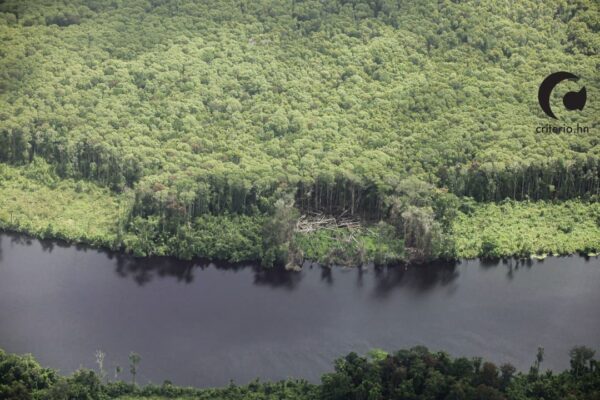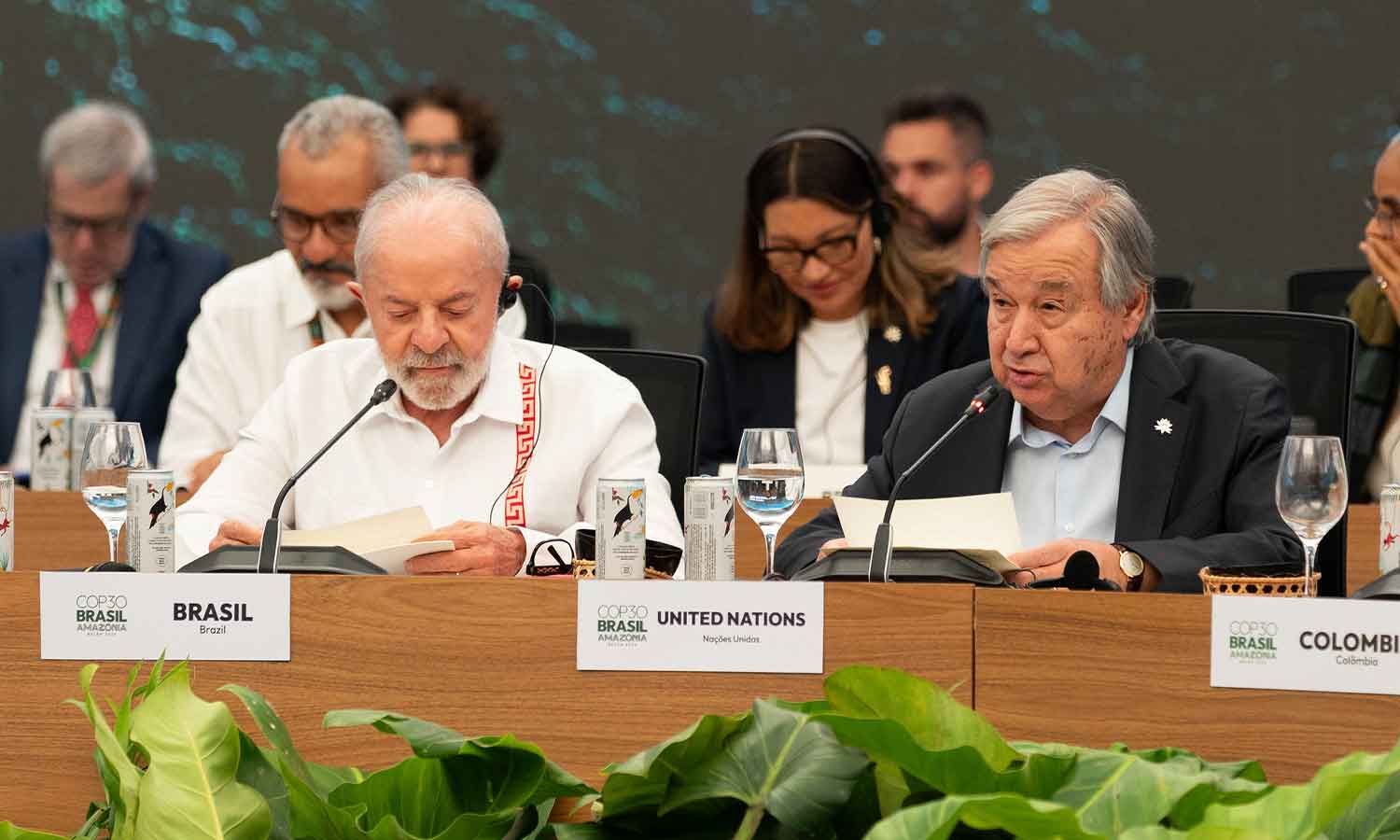After UN court says countries can sue over climate damage, Christian leader warns: ‘The real crisis is spiritual’ – www.christiandaily.com

Report on the International Court of Justice Advisory Opinion on Climate Obligations and its Alignment with Sustainable Development Goals
Executive Summary
- On July 23, the International Court of Justice (ICJ) issued a landmark advisory opinion establishing that states can be held legally accountable for failing to meet their climate obligations under international law.
- This ruling significantly strengthens the international framework for SDG 13 (Climate Action) by creating a legal basis for enforcement and accountability.
- The opinion empowers developing nations to seek legal recourse against wealthier states for climate-related damages, directly supporting the objectives of SDG 10 (Reduced Inequalities).
- By declaring environmental protection a human right, the court’s opinion reinforces the indivisible nature of the SDGs, linking climate action to human well-being, health, and justice.
Legal Framework and Implications for SDG 16: Peace, Justice and Strong Institutions
Key Declarations of the Court
- The court affirmed that states failing to meet climate obligations can be held responsible for internationally wrongful acts that harm the climate system.
- It declared that a clean, healthy, and sustainable environment is an emerging human right, and existing human rights treaties must be interpreted to reflect this.
- The ruling stated that climate-related harms, such as sea-level rise and extreme weather, may infringe upon fundamental human rights, including health, home, and family life, which aligns with the principles of SDG 3 (Good Health and Well-being) and SDG 11 (Sustainable Cities and Communities).
- Each state affected by climate change may individually invoke the responsibility of any state that has committed wrongful acts resulting in damage to the climate system.
Strengthening Global Governance and Justice
- The advisory opinion advances SDG 16 (Peace, Justice and Strong Institutions) by reinforcing the rule of law at the international level and clarifying the legal responsibilities of states in the climate crisis.
- It provides a legal pathway for climate justice, enabling vulnerable nations to hold more powerful states accountable through established international legal institutions.
Addressing Global Inequalities and Vulnerabilities: A Focus on SDG 10 and Related Goals
Disproportionate Impacts on Vulnerable Nations and Peoples
- The ICJ ruling explicitly acknowledges that the adverse effects of climate change disproportionately impact vulnerable groups, including women, children, and indigenous peoples. This recognition directly supports efforts under SDG 5 (Gender Equality) and SDG 10 (Reduced Inequalities).
- The opinion provides a legal tool for Small Island Developing States (SIDS) and other climate-vulnerable nations to challenge the inequalities inherent in the global distribution of climate change impacts and responsibilities.
Case Study: The Cook Islands and SDG 17 (Partnerships for the Goals)
- The Cook Islands, a Pacific nation severely impacted by climate change, submitted a comprehensive report to the ICJ detailing the experiences of its people.
- This submission, a first for the nation, exemplifies the proactive engagement of climate-vulnerable states in shaping international law.
- The effort, encouraged by the Pacific Islands Forum, highlights successful regional cooperation and embodies the spirit of SDG 17 (Partnerships for the Goals), demonstrating how collaboration can amplify the voices of those most affected by global challenges.
Moral and Ethical Dimensions: A Call for Urgent Climate Action
Beyond Legal Frameworks
- Christian leaders and creation care advocates have framed the climate crisis as a profound moral and spiritual issue that transcends legal and political solutions.
- This perspective underscores the ethical imperative behind SDG 13 (Climate Action), emphasizing the moral obligation of wealthier nations to protect their more vulnerable global neighbors.
- Skepticism remains regarding whether legal rulings alone can ensure justice, pointing to a history of wealthy countries ignoring moral and political obligations.
- The ruling is seen as another urgent reminder for all sectors of society, including faith-based organizations, to intensify their response to the environmental crisis.
Which SDGs are addressed or connected to the issues highlighted in the article?
-
SDG 13: Climate Action
- The entire article revolves around the legal and moral obligations of states concerning climate change. It directly addresses the need for action to combat climate change and its impacts, which is the core of SDG 13. The text highlights the “escalating climate crisis” and the need for countries to meet their “climate obligations.”
-
SDG 16: Peace, Justice and Strong Institutions
- The article focuses on a landmark legal development from the International Court of Justice (ICJ), a principal judicial organ of the United Nations. The ruling aims to “reshape international legal norms,” promote the rule of law, and provide a mechanism for justice, allowing “poorer nations to sue wealthier ones.” This directly relates to building effective, accountable, and inclusive institutions at all levels.
-
SDG 10: Reduced Inequalities
- The article explicitly states that the effects of climate change are “disproportionately affecting vulnerable groups including women, children and indigenous people.” It also frames the issue as one between “poorer nations” and “wealthier ones,” with the ICJ ruling empowering the former to seek justice, thereby addressing inequalities between countries.
-
SDG 17: Partnerships for the Goals
- The action was initiated by a request from the United Nations General Assembly to the ICJ. Furthermore, the article mentions the collective action of Pacific nations, noting that “Pacific Leaders encouraged all Pacific Island States to participate in the ICJ process.” This highlights the importance of global partnerships and cooperation to address global challenges like climate change.
-
SDG 3: Good Health and Well-being
- The ruling is cited as declaring that climate-related harms “may infringe on fundamental rights like health.” It explicitly mentions the “impact on the health and livelihoods of individuals” as a consequence of climate change, directly linking environmental degradation to human well-being.
What specific targets under those SDGs can be identified based on the article’s content?
-
Target 13.1: Strengthen resilience and adaptive capacity to climate-related hazards and natural disasters in all countries.
- The article mentions the specific climate-related harms that nations like the Cook Islands face, such as “rising seas, droughts, desertification and natural disasters.” The legal action is a response to the failure to mitigate these hazards, and the ruling aims to strengthen the position of those most affected.
-
Target 16.3: Promote the rule of law at the national and international levels and ensure equal access to justice for all.
- The ICJ’s advisory opinion is a direct application of international law to the climate crisis. The article states the ruling could “empower vulnerable nations to seek justice” and affirms that “each injured State may separately invoke the responsibility of every State which has committed an internationally wrongful act.”
-
Target 16.8: Broaden and strengthen the participation of developing countries in the institutions of global governance.
- The article highlights the active participation of the Cook Islands, a small island developing state, which made its “first-ever submission to the ICJ.” It also notes the encouragement for “all Pacific Island States to participate in the ICJ process,” demonstrating an effort to include the perspectives of developing nations in global legal proceedings.
-
Target 10.3: Ensure equal opportunity and reduce inequalities of outcome, including by eliminating discriminatory laws, policies and practices and promoting appropriate legislation, policies and action in this regard.
- The ruling provides a legal avenue to address the inequality of outcome where poorer nations suffer disproportionately from climate change caused largely by wealthier nations. The article notes the ruling “allows poorer nations to sue wealthier ones for contributing to climate change,” aiming to create a more equitable system of accountability.
Are there any indicators mentioned or implied in the article that can be used to measure progress towards the identified targets?
-
Number of countries with national and local disaster risk reduction strategies (related to Target 13.1)
- While not a direct count, the article implies the existence and importance of such strategies through the detailed submission by the Cook Islands. The “205-page report” documenting “local experiences” and “climate change priorities” serves as a qualitative indicator of a nation’s strategy and its efforts to have it recognized internationally.
-
Proportion of positions in national and international institutions held by developing countries (related to Target 16.8)
- The article provides a specific example that acts as a proxy indicator for participation. The fact that the “Cook Islands-hosted and chaired 52nd Pacific Islands Forum Leaders Meeting” led to a collective push for participation in the ICJ process is an indicator of developing countries taking leadership roles and strengthening their voice in global institutions.
-
Number of legal submissions or cases filed by developing nations on climate change (related to Target 16.3)
- The article explicitly mentions the “Cook Islands’ first-ever submission to the ICJ” and the encouragement for other Pacific states to participate. An increase in such submissions following this ruling would be a direct indicator of developing nations’ access to and use of international justice mechanisms.
-
Documentation of climate change impacts on human rights (related to multiple targets)
- The article implies this as a key tool for legal action. The ICJ ruling itself states that “adverse effects of climate change… may significantly impair the enjoyment of certain human rights.” The report submitted by the Cook Islands, which documents the “experiences and perspectives of Cook Islanders,” is a tangible example of this indicator.
SDGs, Targets, and Indicators Analysis
| SDGs | Targets | Indicators (Mentioned or Implied in the Article) |
|---|---|---|
| SDG 13: Climate Action | 13.1: Strengthen resilience and adaptive capacity to climate-related hazards and natural disasters. | Documentation of climate impacts such as “rising seas, droughts, desertification and natural disasters” in official reports (e.g., the Cook Islands’ 205-page report). |
| SDG 16: Peace, Justice and Strong Institutions | 16.3: Promote the rule of law at the national and international levels and ensure equal access to justice for all. | The issuance of international legal advisory opinions (the ICJ ruling) and the number of legal submissions filed by developing nations (the Cook Islands’ submission). |
| SDG 16: Peace, Justice and Strong Institutions | 16.8: Broaden and strengthen the participation of developing countries in the institutions of global governance. | Active participation and submission of reports by developing countries (Cook Islands) in international judicial bodies (ICJ); collective encouragement for participation by regional bodies (Pacific Islands Forum). |
| SDG 10: Reduced Inequalities | 10.3: Ensure equal opportunity and reduce inequalities of outcome. | Establishment of legal mechanisms allowing “poorer nations to sue wealthier ones,” addressing the disproportionate impact of climate change on vulnerable groups. |
| SDG 3: Good Health and Well-being | (Related to Target 3.d) Strengthen capacity for management of global health risks. | Legal recognition that climate change infringes on the fundamental right to “health” and documentation of the “impact on the health and livelihoods of individuals.” |
Source: christiandaily.com

What is Your Reaction?
 Like
0
Like
0
 Dislike
0
Dislike
0
 Love
0
Love
0
 Funny
0
Funny
0
 Angry
0
Angry
0
 Sad
0
Sad
0
 Wow
0
Wow
0











































































